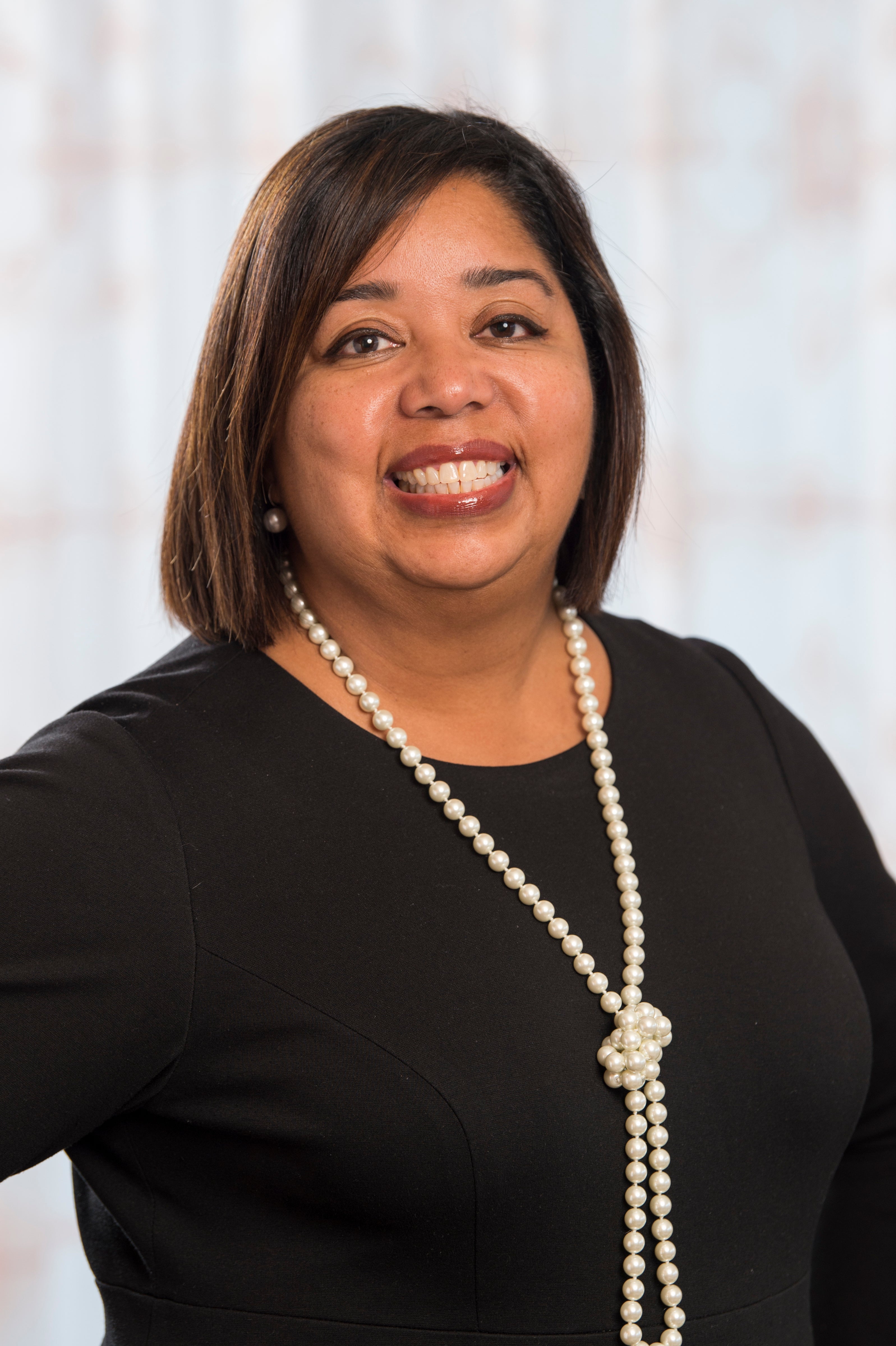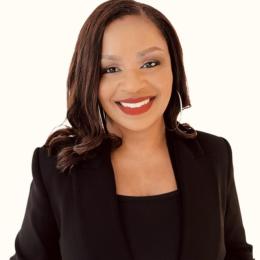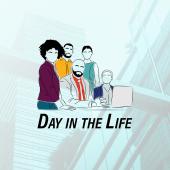In the first of a three-part exclusive interview, ACC President and CEO Veta T. Richardson sits down with ACC Associate Vice President of Editorial Strategy Tiffani Alexander to discuss Richardson’s recently released book,Take Six: Essential Habits to Own Your Destiny, Overcome Challenges, and Unlock Opportunities.


Tiffani Alexander: I see this book as an extension of your mentorship — as well as your desire to share what you’ve learned along the way with others. What motivated you to write Take Six, and did you think of this book in those terms?
Veta T. Richardson: I’ve learned that helping other people really has helped me to think through my own career problems over the years. In fact, as people have often come to me with career challenges, I’ve developed a sort of muscle memory from helping them which has actually made me so much stronger.
And I found that I had a series of steps I’d recommend to people, or questions I’d use to help them probe their own answers — it became like a system. It’s a system that I've seen applied universally — by someone wanting to work in fashion merchandising, for example — to a schoolteacher transitioning into a leadership role at an international institution.
Colleagues would say things like, “Veta, you're such a great career strategist, will you speak to so-and-so?” Or: “So-and-so’s looking to pivot into this field, and I know that's not what you do, but will you offer them some guidance. Maybe you know somebody they could speak to?” And students would often come up to me after a lecture and say, “I couldn't get it all down, do you have a book or a website?” I didn't, although I’d always had it in the back of my mind.
Then, during the pandemic, luck and opportunity crossed when I was presented with a system that would allow me to “put it all down” in a way that wasn’t intimidating.
Then, during the pandemic, luck and opportunity crossed when I was presented with a system that would allow me to “put it all down” in a way that wasn’t intimidating. It all really started from an interview for a podcast, “Curious Minds,” with Rose Ors where I talked about the six principles. Actually, at that time, it was only five, and she said, “You should write a book.” I was like “Yeah right, when?”
Several weeks later, I was contacted by Forbes, and they have this system for new authors to follow to find their voice. So, I jumped. It just became clear that this was a better way to spend my time during the pandemic — reflecting on this instead of on all the things that I'd lost. Working on the book was a way for me to remain connected, to feel vital, and stay sane during a very difficult and dark time in our countries, our communities, and for myself, personally.
The six principles
Alexander: You outline six principles in the book: taking stock, taking risks, taking credit, taking a hand, taking a stand, and taking command.
You note that you took these very steps while pursuing your first summer internship, almost intuitively. That said, where do you think these steps came from? In other words, how did your particular steps for success take form?
Richardson: Thank you. Well, the first three take stock, take risk, and take credit, were solidified during my time at the Minority Corporate Counsel Association (MCCA). At MCCA, I had the benefit of speaking to a lot of people who manage people, as well as those doing research on things like career strategies; what divides those who advance [in their career] verses those who don't; what are things that women and people of color (who are the least represented in leadership) might do better, etc.

Solidifying quickly, those first three steps — take stock, take risks, and take credit — were born out of a lot of conversations, research, and learning.
Take a hand was based upon conversations that I've had with other women leaders about the importance of giving back. Also, I noticed how a lot of successful women aren't shy about sharing who's been instrumental in helping them advance. These women were being giving; not trying to present as Miss or Mrs. Perfect. They were sharing how they are works in progress, and how the advice of others has made a difference to them. Taking a hand and helping others is important.
I noticed how a lot of successful women aren't shy about sharing who's been instrumental in helping them advance.
Veta T. Richardson
I was also awakening to the fact that around this time, a lot of people were coming to me for advice. And, having advised someone on losing their job unexpectedly, for example, helped me the next time someone came around. I started noticing how personally taking a hand made me a better advisor, as well as better at assessing myself.
In other words, what are the skills that I need to develop to create more opportunities for myself? Listening to others helped me develop a plan, as well as more quickly help other people find their way, and a checklist started to develop.
Take a stand was all about MCCA, realizing the importance of your voice and not shying away. I noticed that I was developing ways of getting people to think about things they otherwise were blind to. Getting advice and developing tactics that take a stand also helped me figure out how to enlist powerful allies and make them care.
For example, we started an initiative about white men and diversity to open up the discussion. We kept hearing from white men that they didn't feel like they had anything to say on diversity and might speak wrongly, which can be personally and professionally damaging. So, it was really about opening space. Saying, “No, you’re welcome — diversity isn't diverse without you in the room as well.” That was how finding my voice, in small ways that became amplified over time, came about.
Originally there were five steps — they stopped at take a stand. And then, the 2019 US presidential debates solidified take command. During the debates on the Democratic side, the candidates were asked to speak about their abilities and achievements, and to offer either an apology or a gift to their peers.
I was disappointed when all the women apologized for something that they ought to do better, whereas the men seized the opportunity to talk about the gift that they could offer. It was just like someone had kicked me back to MCCA, and I was listening to people say that women sometimes feel apologetic as leaders. That was a big revelation for me.
But when it’s yours you can either step up and do the best that you can for all the people who are relying on you; or look at them and admit that you failed.
Veta T. Richardson
Then COVID hit and all of a sudden, I was thrown into the leadership situation that I admit I didn't want. Who wants that? But when it’s yours you can either step up and do the best that you can for all the people who are relying on you; or look at them and admit that you failed.
The fear of that taught me that when the ball gets thrown to you, you catch it, and you figure out what to do next. That's how take command was born.
It was born out of disappointment watching the US presidential candidates, who happened to be women, respond to a question. It was noticing how even though two big leaders in the US House and Senate, Nancy Pelosi and Mitch McConnell, are portrayed differently. Nancy had to present her softer side. I don't even know if Mitch has kids. She [Nancy] came with grandkids; he wouldn't. It was looking at take command and seeing it applied differently to women and realizing the disappointment of that.
As a leader hit with COVID, I had no choice but to step up and figure it out. During this time, I began to notice everyday leaders who I wrote about in the book, including two of our colleagues who stepped up during our office’s virtual coffees.
Pam [Entsminger, ACC legal resources and program development specialist] stepped up with a positive message every day — a message people started to look forward to.
Taking command is not about the position you fill, but it’s noticing the voids and stepping into them.
Veta T. Richardson
It was a unifying thing, and she became just as much of a leader as others in positional leadership. She saw a need and stepped into the void to fill it. I watched Brendan [McGowan, ACC international membership and chapters manager] find his voice on wellness and become someone who I as a leader really looked forward to hearing from. That’s leadership. Nobody assigns it.
Taking command is not about the position you fill, but it’s noticing the voids and stepping into them.
Sharing the spotlight
Alexander: I noticed that your ghostwriter, Deborah, did the forward to your book. This further solidifies for me what I know of you as a mentor. You asked her to share her own story here, which was so impactful. That said, what did you learn from her?
Richardson: Wow, so much. First of all, she's partnered with people to publish five best sellers. Regrettably, you’ll l never see her name on them, but you'll see it on mine. I didn't want someone that talented to be a ghost. I have a contractual right where you could’ve never known Deborah existed, but the gift she gave me I wanted to share with people. I want to say to people, “Hey, if you want to write a book, get a ghostwriter.”
Deborah was amazing about process, and she knows about the fundamentals that make for a good, readable book. When it's appropriate to share a story; how to go back to a story so there are threads that tie through — that literary talent is one I’ve never even thought about. It was her idea to do a wrap up at the end of each chapter.
I didn't want someone that talented to be a ghost.
Veta T. Richardson
She would quiz me on what people should learn at the end of this chapter. What are the lessons that we want to make sure are unpacked? What do you want them to reflect on? Her beauty is that while it's all my words and thoughts, she's pulled it out and organized it and took what could’ve been a boring story and infused it with life, humor, and humanity in ways that I couldn’t. It was a perfect blend of talent.
In fact, she recently came up from Melbourne and spent the weekend with me. Talking every week, from July through February, in the middle of COVID-19 lockdowns, you form a friendship, and I hope it’s a lifelong one.




